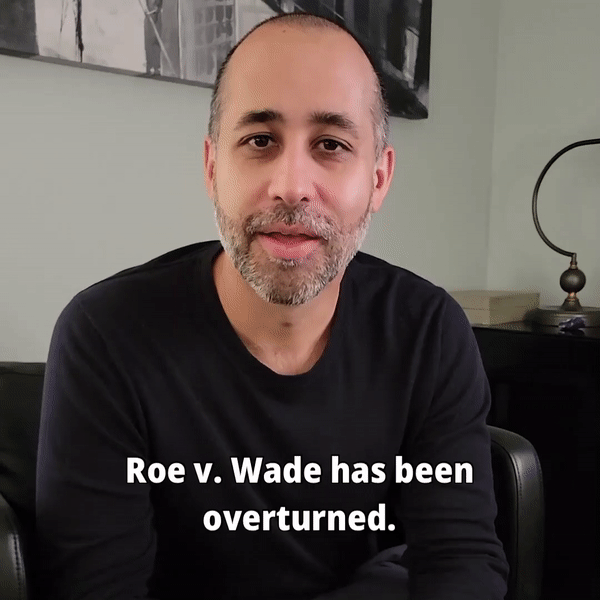On September 9, 2014, Governor Jerry Brown signed California Assembly Bill 2365 (aka the “Yelp bill”) into law. As of January 1, 2015, the new law, codified as California Civil Code section 1670.8, prohibits the use of “non-disparagement” clauses in consumer contracts.
The law seems to be a response to a particularly egregious set of facts. A consumer, frustrated about undelivered merchandise and non-responsive customer service from KlearGear.com, posted a bad online review on Ripoffreport.com. KlearGear claimed the posting violated a non-disparagement clause in the terms of sale agreement and assessed a $3,500 fine. The customer claimed to have been unaware of the non-disparagement clause or the fine until several years after the event. KlearGear had by then reported the unpaid fine as a credit delinquency, and the customer’s credit rating was adversely affected.
Although generally hailed as welcome consumer protection, California’s new law contains ambiguities that may limit the protection actually extended to consumers. It also presents a potentially troubling situation for small businesses that can be ruined by a few bad online reviews. California law is generally very protective of consumers, but similar issues have arisen in New York, Arizona and Virginia, and the responses of courts and legislatures have been varied.
What California Law Provides
The new law provides that a “contract or proposed contract for the sale or lease of consumer goods or services may not include a provision waiving the consumer’s right to make any statement regarding the seller or lessor or its employees or agents, or concerning the goods or services.” It is also “unlawful to threaten or to seek to enforce” such a provision, or to “otherwise penalize” a consumer for making any such statement.
The law carries maximum statutory penalties of $2500 for the first violation, and $5,000 for each subsequent violation. Willful, intentional or reckless violations carry a maximum penalty of $10,000. The law expressly does not prohibit or limit a person or business that hosts online consumer reviews or comments from removing a statement that is otherwise lawful to remove.
The law has no geographic limitations. Thus even out-of-state businesses with prospective and current customers in California should review their customer agreements to ensure compliance. Although the bill was introduced to ban non-disparagement clauses in online contracts or clickwrap agreements, the language is broader than that and effectively applies to non-disparagement clauses in any contract or proposed contract with consumers in California.
The Ambiguities
The law also contains ambiguities that are likely sources of litigation. For example, if a business inadvertently fails to delete a non-disparagement clause from its online terms, is that a single violation or multiple violations? The penalties, alone, make that a very important issue.
Additionally, the law makes it unlawful for a business to “otherwise penalize” a consumer for making a statement protected by the statute. What does “otherwise penalize” mean? Would it include refusing to do business with a consumer who has posted a negative review? Is that language intended to address the approach some service providers have taken, requiring consumers to assign the copyright of unwritten reviews to the business, thereby positioning the provider to send a DMCA takedown demand in the event of a bad online review?
Others have claimed that reviews are confidential business information, subject to claims of trade secret misappropriation. Would suing a reviewer on this theory amount to a penalty?
The law also permits a consumer to waive these protections if the waiver is “knowing, voluntary and intelligent.” This phrase seems to try to get to the problem of the well-hidden clause. But suppose a merchant discloses the non-disparagement provision and conditions the availability of a certain feature, such as a 90-day warranty, on the customer’s agreement? It might be a good deal — 90 days of protection from a bad online review in exchange for 90 days of warranty, but does it rise to the “knowing, voluntary and intelligent” standard?
The Case for Small Business
An occasional unhappy customer is a virtual certainty in business. It is also a sad fact of life that unscrupulous competitors may be the source of negative reviews and that a small percentage of the population is genuinely irrational.
However, unlike a large enterprise with an established reputation, a fledgling business can be ruined by a couple of bad online reviews. The new element in this situation is the magnifying power of the internet, which makes these reviews potentially far more destructive. Adding insult to injury, the Ninth Circuit has also upheld Yelp’s practice of manipulating ratings in order to boost advertising revenue, which has prompted more than a few furious comments from the business community.
Let us be clear about the scope of the problem, however. There may be genuinely unhappy customers and there is harassment. The response that is appropriate in one situation would not be appropriate in the other.
How Can Small Businesses Protect Themselves from Bad Online Reviews?
The first line of defense, of course, is a great product and super customer service. Watch your credit card charge backs carefully. They may be a good indicator of a problem, if one exists.
In the case of a genuinely unhappy customer who posts a bad online review, some sound advice, ironically, comes from Yelp, which suggests that business owners should refresh their commitment to the old adage that “customer is always right”.
Yelp suggests responding privately with an apology, an acknowledgment of the issue and an invitation to return. If the bad review is based on basic misinformation, such as a misunderstood closing time, it might be appropriate to respond publicly but only to clarify a basic point of factual information. Above all, business owners should not become involved in a public war of words with a former customer.
But what about the review that is grossly unfair, or seems to be motivated by a desire to harass? This is the small, but potentially very harmful, subset of the problem that still needs to be solved. It’s not the unhappy customer. The problem may be better understood and addressed within the framework of defamation or unfair business practices.
Is it Ever a Good Idea to Sue a Reviewer for Defamation?
In order to succeed in a defamation suit, an injured party must demonstrate that:
- The offending statement was an untrue statement of fact. Businesses are protected only from expressions of untrue facts. Unfavorable opinions are covered by the First Amendment. “Al’s Automotive sells stolen cars,” might be actionable. “Al’s Automotive sells lousy cars,” would not be.
- The statement must have been maliciously or negligently made. In some states, negligent intent may include the intention to hurt your business.
- The statement must have been harmful to your business. It can be difficult to show that your business has lost potential sales because of the review. It’s the problem of proving a negative proposition.
Even if your business can satisfy these three criteria, a defamation suit, however emotionally satisfying, may not be worth it.
Consider legal costs, the potential that you may lose and the damage you may do to your own business reputation by going after a customer. In California, there is also the special risk of finding that you are the target of an anti-SLAPP motion.
SLAPP and Anti-SLAPP
A SLAPP, or Strategic Lawsuit against Public Participation, is a suit designed to chill communication on an issue of public concern. The small businessperson who brings an action for defamation on the basis of an unfavorable online review risks having a court view it as a SLAPP.
The California Code of Civil Procedure section 425.16 permits a court to dismiss a lawsuit as a SLAPP, if it seems to be without merit and to have little likelihood of success. The court may then award the alleged defamer attorney’s fees and defense costs. Washington State and New York have similar anti-SLAPP statutes.
Although a legal action on the theory of defamation seems like a theoretical possibility, many businesspeople decide that it is not worth either the legal or the business risk.
Future of Non-Disparagement Clauses
Clauses prohibiting customers from publishing reviews of a product without prior consent from the vendor are already prohibited in New York, as well as California.
In Arizona, on the other hand, at least one federal court has upheld a non-disparagement clause in a clickwrap agreement, but it may be worth noting that the decision is from 2009.
Virginia law, although it does not refer directly to non-disparagement clauses, specifically permits the subjects of anonymous online reviews to discover the source if:
- The speech either is or may be tortious or illegal,
- Other efforts to identify the speaker have been fruitless,
- The identity of the speaker is necessary,
- No case-ending motion, such as one for summary judgment, is pending and
- The individual subpoenaed has or is likely to have the information.
This seems to change the landscape, in Virginia, at least, for defamation suits.
The answer, then, to the question of whether non-disparagement clauses have any use is:
- not in New York,
- only if fully are disclosed and optional in California
- only if fully disclosed elsewhere, for tactical if not legal reasons and
- possibly in Arizona.
The future of non-disparagement clauses in customer agreements looks very limited. This may be good news for consumers, but poses a significant problem for businesses whose reputations can be badly damaged, sometimes unfairly, by negative online reviews.
The problem of the destructive power of negative online reviews, especially those intended to harass is much larger than the narrow issue of non-disparagement clauses. That was simply one of the defensive tools that some businesspeople chose to use.
With non-disparagement clauses largely off the table and defamation actions too risky, how should businesses protect themselves, then? For the moment, the best recourse seems to lie in the world of customer satisfaction.


![Ultimate Legal Breakdown: Negative Online Reviews [e288]](https://www.pashalaw.com/wp-content/uploads/2017/06/Ultimate-Legal-Breakdown-Online-Reviews-1-1024x543.jpg)


![How Malls Can Require Stores To Be Open On Thanksgiving [e240]](https://www.pashalaw.com/wp-content/uploads/2015/11/iStock_000066139999_Small-1.jpg)

![The Federal Law That Would Prevent Yelp Gag Clauses [e237]](https://www.pashalaw.com/wp-content/uploads/2015/11/iStock_000008520917_Small.jpg)
![How Nightclub Cover Charges Sparked Discrimination Claims [e234]](https://www.pashalaw.com/wp-content/uploads/2015/10/iStock_000041229130_Small.jpg)
![How One Business Was Awarded Money From An Untrue Yelp Review [e226]](https://www.pashalaw.com/wp-content/uploads/2015/09/iStock_000036615928_Small.jpg)
![How Reddit Caused An Uproar With Unpaid Volunteers [e206] How Reddit Caused An Uproar With Unpaid Volunteers](https://www.pashalaw.com/wp-content/uploads/2015/07/How-Reddit-Caused-An-Uproar-With-Unpaid-Volunteers.png)
![Best Of The Second Hundred Episodes! [e201] Best Of The Second Hundred Episodes!](https://www.pashalaw.com/wp-content/uploads/2015/06/Best-Of-The-Second-Hundred-Episodes.jpg)




![Law in the Digital Age: Exploring the Legal Intricacies of Artificial Intelligence [e323]](https://www.pashalaw.com/wp-content/uploads/2023/11/WhatsApp-Image-2023-11-21-at-13.24.49_4a326c9e-300x212.jpg)
![Unraveling the Workforce: Navigating the Aftermath of Mass Layoffs [e322]](https://www.pashalaw.com/wp-content/uploads/2023/07/Untitled-design-23-300x212.png)
![Return to the Office vs. Remote: What Can Employers Legally Enforce? [e321]](https://www.pashalaw.com/wp-content/uploads/2023/01/Pasha_LSSB_321_banner-300x212.jpg)
![Explaining the Hans Niemann Chess Lawsuit v. Magnus Carlsen [e320]](https://www.pashalaw.com/wp-content/uploads/2022/10/LAWYER-EXPLAINS-7-300x169.png)
![California v. Texas: Which is Better for Business? [313]](https://www.pashalaw.com/wp-content/uploads/2021/07/Pasha_LSSB_CaliforniaVSTexas-300x212.jpg)
![Buyers vs. Sellers: Negotiating Mergers & Acquisitions [e319]](https://www.pashalaw.com/wp-content/uploads/2022/06/Pasha_LSSB_BuyersVsSellers_banner-300x212.jpg)
![Employers vs. Employees: When Are Employment Restrictions Fair? [e318]](https://www.pashalaw.com/wp-content/uploads/2022/05/Pasha_LSSB_EmployeesVsEmployers_banner-1-300x212.jpg)
![Vaccine Mandates Supreme Court Rulings [E317]](https://www.pashalaw.com/wp-content/uploads/2022/02/WhatsApp-Image-2022-02-11-at-4.10.32-PM-300x212.jpeg)
![Business of Healthcare [e316]](https://www.pashalaw.com/wp-content/uploads/2021/11/Pasha_LSSB_BusinessofHealthcare_banner-300x212.jpg)
![Social Media and the Law [e315]](https://www.pashalaw.com/wp-content/uploads/2021/10/WhatsApp-Image-2021-10-06-at-1.43.08-PM-300x212.jpeg)
![Defining NDA Boundaries: When does it go too far? [e314]](https://www.pashalaw.com/wp-content/uploads/2021/09/Pasha_LSSB_NDA_WordPress-2-300x212.jpg)
![More Than a Mistake: Business Blunders to Avoid [312] Top Five Business Blunders](https://www.pashalaw.com/wp-content/uploads/2021/06/Pasha_LSSB_Blunders_WP-1-300x212.jpg)
![Is There a Right Way to Fire an Employee? We Ask the Experts [311]](https://www.pashalaw.com/wp-content/uploads/2021/02/Pasha_LSSB_FireAnEmployee_Website-300x200.jpg)
![The New Frontier: Navigating Business Law During a Pandemic [310]](https://www.pashalaw.com/wp-content/uploads/2020/12/Pasha_LSSB_Epidsode308_Covid_Web-1-300x200.jpg)
![Wrap Up | Behind the Buy [8/8] [309]](https://www.pashalaw.com/wp-content/uploads/2020/11/Pasha_BehindTheBuy_Episode8-300x200.jpg)
![Is it all over? | Behind the Buy [7/8] [308]](https://www.pashalaw.com/wp-content/uploads/2020/09/iStock-1153248856-overlay-scaled-300x200.jpg)
![Fight for Your [Trademark] Rights | Behind the Buy [6/8] [307]](https://www.pashalaw.com/wp-content/uploads/2020/07/Fight-for-your-trademark-right-300x200.jpg)
![They Let It Slip | Behind the Buy [5/8] [306]](https://www.pashalaw.com/wp-content/uploads/2020/06/Behind-the-buy-they-let-it-slip-300x200.jpg)
![Mo’ Investigation Mo’ Problems | Behind the Buy [4/8] [305]](https://www.pashalaw.com/wp-content/uploads/2020/05/interrobang-1-scaled-300x200.jpg)
![Broker or Joker | Behind the Buy [3/8] [304] Behind the buy - Broker or Joker](https://www.pashalaw.com/wp-content/uploads/2020/04/Joker-or-Broker-1-300x185.jpg)
![Intentions Are Nothing Without a Signature | Behind the Buy [2/8] [303]](https://www.pashalaw.com/wp-content/uploads/2020/04/intentions-are-nothing-without-a-signature-300x185.jpg)
![From First Steps to Final Signatures | Behind the Buy [1/8] [302]](https://www.pashalaw.com/wp-content/uploads/2020/04/first-steps-to-final-signatures-300x185.jpg)
![The Dark-side of GrubHub’s (and others’) Relationship with Restaurants [e301]](https://www.pashalaw.com/wp-content/uploads/2015/04/When-Competition-Goes-Too-Far-Ice-Cream-Truck-Edition-300x201.jpg)
![Ultimate Legal Breakdown of Internet Law & the Subscription Business Model [e300]](https://www.pashalaw.com/wp-content/uploads/2019/05/Ultimate-Legal-Breakdown-of-Internet-Law-the-Subscription-Business-Model-300x196.jpg)
![Why the Business Buying Process is Like a Wedding?: A Legal Guide [e299]](https://www.pashalaw.com/wp-content/uploads/2019/03/futura-300x169.jpg)
![Will Crowdfunding and General Solicitation Change How Companies Raise Capital? [e298]](https://www.pashalaw.com/wp-content/uploads/2018/11/Will-Crowdfunding-and-General-Solicitation-Change-How-Companies-Raise-Capital-300x159.jpg)
![Pirates, Pilots, and Passwords: Flight Sim Labs Navigates Legal Issues (w/ Marc Hoag as Guest) [e297]](https://www.pashalaw.com/wp-content/uploads/2018/07/flight-sim-labs-300x159.jpg)
![Facebook, Zuckerberg, and the Data Privacy Dilemma [e296] User data, data breach photo by Pete Souza)](https://www.pashalaw.com/wp-content/uploads/2018/04/data-300x159.jpg)
![What To Do When Your Business Is Raided By ICE [e295] I.C.E Raids business](https://www.pashalaw.com/wp-content/uploads/2018/02/ice-cover-300x159.jpg)
![General Contractors & Subcontractors in California – What you need to know [e294]](https://www.pashalaw.com/wp-content/uploads/2018/01/iStock-666960952-300x200.jpg)
![Mattress Giants v. Sleepoplis: The War On Getting You To Bed [e293]](https://www.pashalaw.com/wp-content/uploads/2017/12/sleepopolis-300x159.jpg)
![The Harassment Watershed [e292]](https://www.pashalaw.com/wp-content/uploads/2017/12/me-2-300x219.jpg)
![Investing and Immigrating to the United States: The EB-5 Green Card [e291]](https://www.pashalaw.com/wp-content/uploads/2012/12/eb-5-investment-visa-program-300x159.jpg)
![Responding to a Government Requests (Inquiries, Warrants, etc.) [e290] How to respond to government requests, inquiries, warrants and investigation](https://www.pashalaw.com/wp-content/uploads/2017/10/iStock_57303576_LARGE-300x200.jpg)
![Ultimate Legal Breakdown: Employee Dress Codes [e289]](https://www.pashalaw.com/wp-content/uploads/2017/08/Ultimate-Legal-Breakdown-Template-1-300x159.jpg)
![Ultimate Legal Breakdown: Negative Online Reviews [e288]](https://www.pashalaw.com/wp-content/uploads/2017/06/Ultimate-Legal-Breakdown-Online-Reviews-1-300x159.jpg)
![Ultimate Legal Breakdown: Social Media Marketing [e287]](https://www.pashalaw.com/wp-content/uploads/2017/06/ultimate-legal-breakdown-social-media-marketing-blur-300x159.jpg)
![Ultimate Legal Breakdown: Subscription Box Businesses [e286]](https://www.pashalaw.com/wp-content/uploads/2017/03/ultimate-legal-breakdown-subscription-box-services-pasha-law-2-300x159.jpg)
![Can Companies Protect Against Foreseeable Misuse of Apps [e285]](https://www.pashalaw.com/wp-content/uploads/2017/01/iStock-505291242-300x176.jpg)
![When Using Celebrity Deaths for Brand Promotion Crosses the Line [e284]](https://www.pashalaw.com/wp-content/uploads/2017/01/celbrity-300x159.png)
![Are Employers Liable When Employees Are Accused of Racism? [e283] Racist Employee](https://www.pashalaw.com/wp-content/uploads/2016/12/Are-employers-liable-when-an-employees-are-accused-of-racism-300x159.jpg)
![How Businesses Should Handle Unpaid Bills from Clients [e282] What to do when a client won't pay.](https://www.pashalaw.com/wp-content/uploads/2016/12/How-Businesses-Should-Handle-Unpaid-Bills-to-Clients-300x159.png)
![Can Employers Implement English Only Policies Without Discriminating? [e281]](https://www.pashalaw.com/wp-content/uploads/2016/11/Can-Employers-Impliment-English-Only-Policies-Without-Discriminating-300x159.jpg)
![Why You May No Longer See Actors’ Ages on Their IMDB Page [e280]](https://www.pashalaw.com/wp-content/uploads/2016/10/IMDB-AGE2-300x159.jpg)
![Airbnb’s Discrimination Problem and How Businesses Can Relate [e279]](https://www.pashalaw.com/wp-content/uploads/2016/09/airbnb-300x159.jpg)
![What To Do When Your Amazon Account Gets Suspended [e278]](https://www.pashalaw.com/wp-content/uploads/2016/09/What-To-Do-When-Your-Amazon-Account-Gets-Suspended-1-300x200.jpg)
![How Independent Artists Reacted to Fashion Mogul Zara’s Alleged Infringement [e277]](https://www.pashalaw.com/wp-content/uploads/2016/08/How-Independent-Artists-Reacted-to-Fashion-Mogul-Zaras-Alleged-Infringement--300x159.jpg)
![Can Brave’s Ad Replacing Software Defeat Newspapers and Copyright Law? [e276]](https://www.pashalaw.com/wp-content/uploads/2016/08/Can-Braves-Ad-Replacing-Software-Defeat-Newspapers-and-Copyright-Law-300x159.jpg)
![Why The Roger Ailes Sexual Harassment Lawsuit Is Far From Normal [e275]](https://www.pashalaw.com/wp-content/uploads/2016/07/WHY-THE-ROGER-AILES-SEXUAL-HARASSMENT-LAWSUIT-IS-FAR-FROM-NORMAL-300x159.jpeg)
![How Starbucks Turned Coveted Employer to Employee Complaints [e274]](https://www.pashalaw.com/wp-content/uploads/2016/07/iStock_54169990_LARGE-300x210.jpg)
